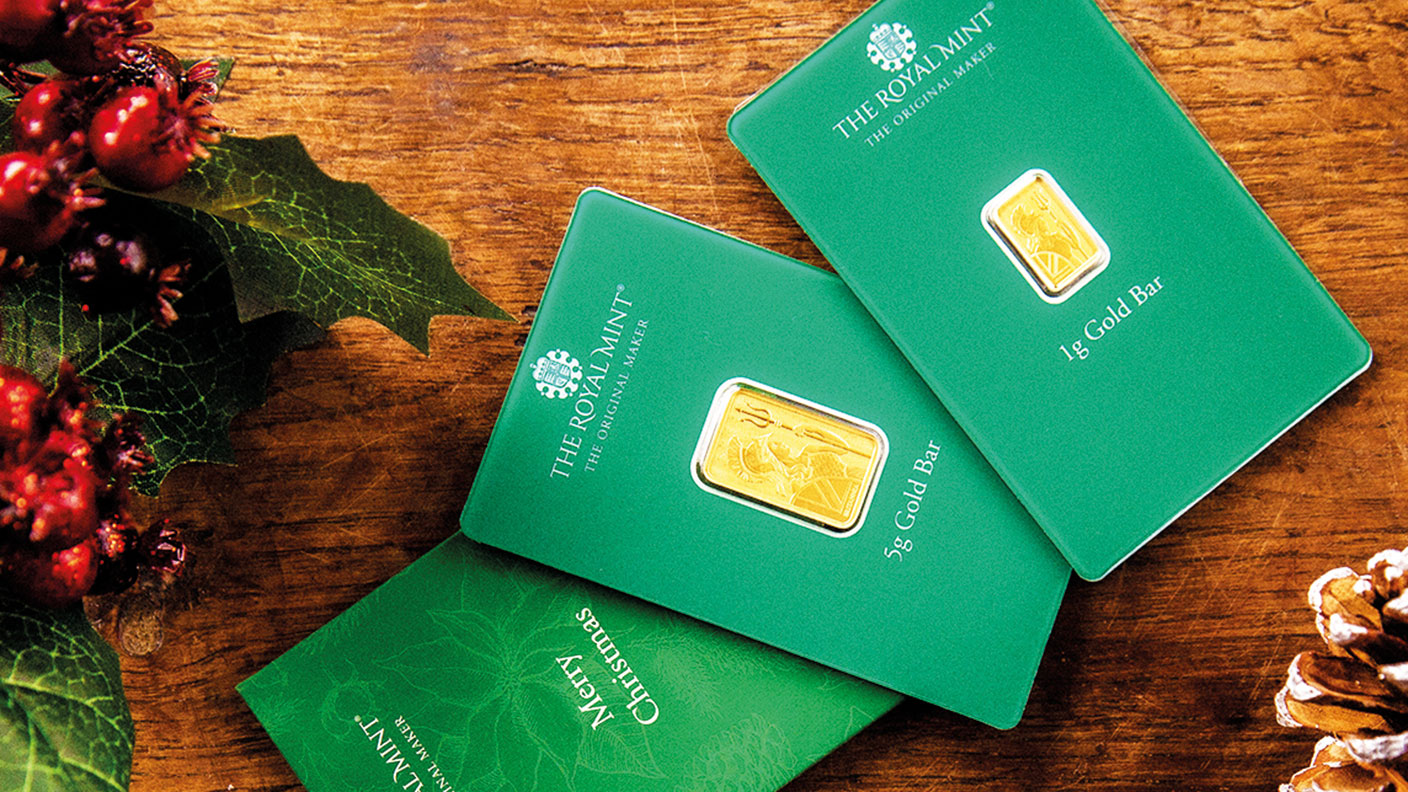The best financial gifts to give this Christmas
Christmas is coming and most of us are now planning presents. If you are thinking about giving a financial gift this year, then there are a few things you need to be aware of, says Ruth Jackson Kirby


Get the latest financial news, insights and expert analysis from our award-winning MoneyWeek team, to help you understand what really matters when it comes to your finances.
You are now subscribed
Your newsletter sign-up was successful
Want to add more newsletters?

Twice daily
MoneyWeek
Get the latest financial news, insights and expert analysis from our award-winning MoneyWeek team, to help you understand what really matters when it comes to your finances.

Four times a week
Look After My Bills
Sign up to our free money-saving newsletter, filled with the latest news and expert advice to help you find the best tips and deals for managing your bills. Start saving today!
One thing you definitely want to avoid this Christmas is gift cards. When a company goes bust gift cards are rendered worthless and there is no way to get the money back. This year several high-street names have collapsed into administration, most recently Debenhams and the Arcadia group that includes Topshop, Dorothy Perkins and Wallis, among other brands. People with gift cards for the Arcadia group are rapidly discovering how little control they have over spending their vouchers. The group has put a limit on gift cards so you can only use them to pay for 50% of purchases. “If you’re thinking of giving gift vouchers this Christmas, let this be a warning to you,” says MoneySavingExpert’s Martin Lewis. With “so many retailers in trouble... give [people] money to spend... instead”.
Another option is Premium Bonds. You can now buy a bond for someone else for as little as £25. But the odds of winning have lengthened considerably from 24,500 to one to 34,500 to one. There have also been many administrative problems with National Savings & Investments (NS&I), the Treasury-backed bank that operates Premium Bonds, as we noted last week. After trying to buy Premium Bonds for his nephew, The Times’ James Coney was so bamboozled by administrative requests and an inability to get through on the phone that he gave up and said he was “not going to bother trying again”.
If you want to give cash, your safest choice may be to make a bank transfer to your recipient. For children, ask the parents if they have a junior individual savings account (Jisa) you could pay your Christmas present into. If they don’t yet have a Jisa, note that Coventry Building Society is currently offering the best rate on a cash Jisa: 2.95%. These accounts can’t be accessed until the child turns 18, however, so an investment Isa is likely to deliver better returns over the long term.
MoneyWeek
Subscribe to MoneyWeek today and get your first six magazine issues absolutely FREE

Sign up to Money Morning
Don't miss the latest investment and personal finances news, market analysis, plus money-saving tips with our free twice-daily newsletter
Don't miss the latest investment and personal finances news, market analysis, plus money-saving tips with our free twice-daily newsletter
If you want to give something more exciting than cash, consider whisky, says Sam Brodbeck in The Daily Telegraph. Estate agent Knight Frank’s 2020 wealth report reveals which luxury investments have performed the best. “Over the past decade it is rare whisky that comes out on top – with prices up more than sixfold, some way ahead of the rest of the pack.” The report found that rare whisky prices have increased by 564% over the past ten years, compared with 141% for art or 77% for coloured diamonds. The most valuable whisky comes from the Macallan distillery: “its bottles keep breaking records”. One 28-year-old funded a deposit for a house after he “cashed in his collection of Macallan single malts for £44,000”. His father had spent £5,000 buying the bottles for birthdays.
Finally, don’t forget the oldest of all Christmas gifts: gold. Gold has appreciated by 34% over the past decade and by 400% in 20 years. The Royal Mint is selling gold bullion with prices starting at £75 for a one-gramme Christmas gold bar.
Get the latest financial news, insights and expert analysis from our award-winning MoneyWeek team, to help you understand what really matters when it comes to your finances.

Ruth Jackson-Kirby is a freelance personal finance journalist with 17 years’ experience, writing about everything from savings accounts and credit cards to pensions, property and pet insurance.
-
 Should you buy an active ETF?
Should you buy an active ETF?ETFs are often mischaracterised as passive products, but they can be a convenient way to add active management to your portfolio
-
 Power up your pension before 5 April – easy ways to save before the tax year end
Power up your pension before 5 April – easy ways to save before the tax year endWith the end of the tax year looming, pension savers currently have a window to review and maximise what’s going into their retirement funds – we look at how
-
 NS&I February Premium Bonds winners revealed – did you win £1 million?
NS&I February Premium Bonds winners revealed – did you win £1 million?More than 2.7 million historic Premium Bonds prizes are still waiting to be claimed, NS&I says
-
 Why it might be time to switch your pension strategy
Why it might be time to switch your pension strategyYour pension strategy may need tweaking – with many pension experts now arguing that 75 should be the pivotal age in your retirement planning.
-
 Rachel Reeves is rediscovering the Laffer curve
Rachel Reeves is rediscovering the Laffer curveOpinion If you keep raising taxes, at some point, you start to bring in less revenue. Rachel Reeves has shown the way, says Matthew Lynn
-
 ISA reforms will destroy the last relic of the Thatcher era
ISA reforms will destroy the last relic of the Thatcher eraOpinion With the ISA under attack, the Labour government has now started to destroy the last relic of the Thatcher era, returning the economy to the dysfunctional 1970s
-
 Investing in forestry: a tax-efficient way to grow your wealth
Investing in forestry: a tax-efficient way to grow your wealthRecord sums are pouring into forestry funds. It makes sense to join the rush, says David Prosser
-
 'Expect more policy U-turns from Keir Starmer'
'Expect more policy U-turns from Keir Starmer'Opinion Keir Starmer’s government quickly changes its mind as soon as it runs into any opposition. It isn't hard to work out where the next U-turns will come from
-
 Why pension transfers are so tricky
Why pension transfers are so trickyInvestors could lose out when they do a pension transfer, as the process is fraught with risk and requires advice, says David Prosser
-
 Modern Monetary Theory and the return of magical thinking
Modern Monetary Theory and the return of magical thinkingThe Modern Monetary Theory is back in fashion again. How worried should we be?